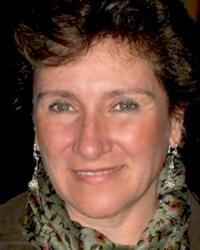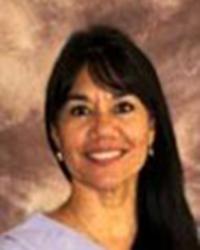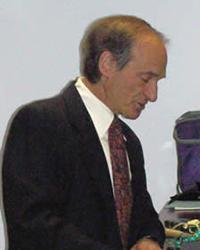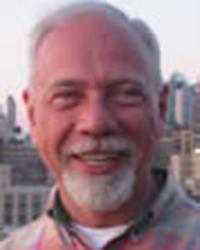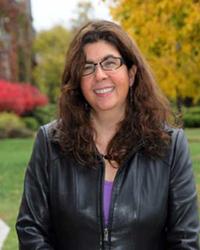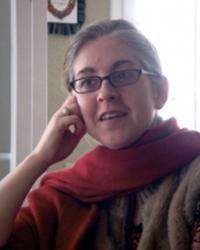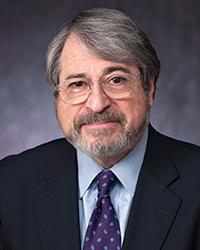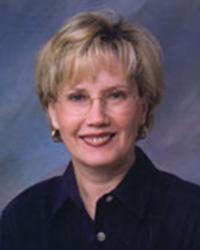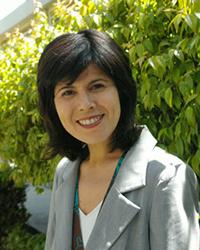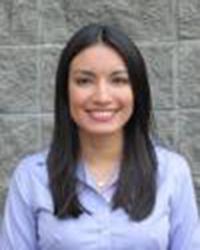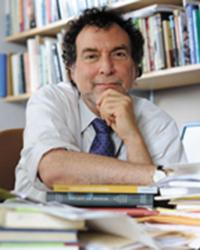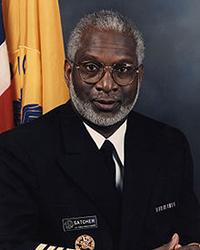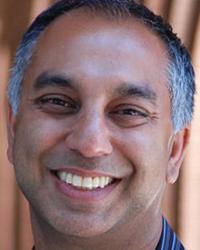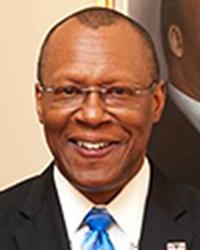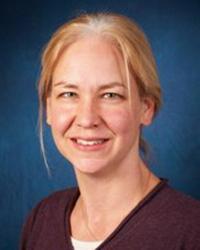CGMS September 2014 Conference: Health Across Borders: Migration, Disease, Medicine, and Public Health in a Global Age
On September 18-19, 2014, the Center for the History of the New America and the Center for Health Equity at the University of Maryland will co-host a conference exploring the connections between migration, race, disease, and public health.
Conference Information
September 18-19, 2014
University of Maryland, College Park, MD
About the Conference
On September 18-19, 2014, the Center for the History of the New America and the Center for Health Equity at the University of Maryland will co-host a conference exploring the connections between migration, race, disease, and public health. Dr. David Satcher, 16th Surgeon General of the United States, will give the keynote address in the Atrium in the Stamp Student Union.
Historically, immigration has had as much to do with the movement of disease as with the movement of people. In the United States, Ellis, Angel, and Sullivan Islands began as quarantine stations, and to this day immigrants and their health continue to be a focus of policy debates. From smallpox to AIDS, immigrants have been the targets of medicalized prejudice and have been stigmatized by associations with disease. After their arrival, immigrants face unique challenges when interacting with doctors, hospitals, and governmental health care professionals. Although their work leaves them vulnerable to injury and disease, immigrants struggle with inequities in access to quality health care.
Health Across Borders: Migration, Disease, Medicine, and Public Health in a Global Age will bring together leading scholars, practitioners, public officials, labor leaders, and immigrants themselves to explore public health in the age of mass migration. Among other matters, they will address the economics of migration, patterns of prejudice in medical practices, and access to health insurance. The conference will be free and open to the public, with no registration required.
The conference will be preceded by a Health Expo on September 5 and 6 that will connect health professionals and organizations to members of the campus and the local community.
Health Across Borders: Migration, Disease, Medicine, and Public Health in a Global Age is co-sponsored by the University of Maryland Center for Health Equity, the Department of History, the Department of American Studies, the Department of Sociology, the Department of Anthropology, the College of Arts and Humanities, the College of Behavioral and Social Sciences, the Office of Undergraduate Studies, the Office of Diversity and Inclusion, and the Maryland Population Research Center.
Schedule
Thursday, September 18
4:30pm
Reception
5:00pm
Introductory Remarks
5:30pm
Keynote Address by David Satcher, 16th Surgeon General of the United States
"Public Health in the Age of Globalism"
Friday, September 19
9:00am
Session 1A: Migration and Infectious Disease
Infectious diseases represent continuing public health challenges as they travel the globe, spread by individuals on the move. The recent threat of an influenza pandemic aroused nativist reaction to immigrants not unlike the reaction to the foreign-born in 1918.
Cambridge Community Center, Room 1100
Emmanuel d’Harcourt (International Rescue Committee)
"Learning From Our Nightmares: What Ebola is Teaching us About Global Public Health"
Nayan Shah (University of Southern California)
"Migration, Race and the Historical Legacies of Quarantine"
Xóchitl Castañeda (Health Initiatives of the Americas, UC Berkeley)
"Reaching Latinos: Lessons Learned from the H1N1 Epidemics"
Chair: Stephen B. Thomas (Department of Health Services Administration, University of Maryland)
Session 1B: Dangers and Disability in the Workplace
Immigrant workers in factory, mine, and field have long played a significant role in American economic well-being. However, foreign-born workers have long been vulnerable to the diseases and injuries of their jobs.
Cambridge Community Center, Room 1205
David Rosner (Columbia University)
"Sand and Lead, Workers and Children: The Public Renegotiation of Responsibility for Occupational and Environmental Damage in Late 20th Century America"
Chantel Rodriguez (University of Maryland, College Park)
"Negotiating Disability in the American Workplace: Railroad Braceros and the Promise of Mexican Citizenship, 1943-1946"
David Gerber, (State University of New York, Buffalo and Center for Disability Studies)
"Still Sick: Health Consciousness and Its Consequenses among European Immigrants in the Nineteenth Century"
Chair: Marian Moser Jones (Department of Family Science, School of Public Health, University of Maryland)
11:15am
Lunch Talk
Cambridge Community Center, Room 1100
Bert Hansen (Baruch College)
"Picturing Medicine in LIFE Magazine: Messages and Medium in Popular Science, 1936-1972"
1:30pm
Session 2A: Patterns of Prejudice: the Medicalization of Nativism
Immigrants have long been the targets of medicalized prejudice, stigmatized for such diseases as choler, polio, and TB. More recently Haitians have been blamed for the AIDS epidemic and Asian immigrants for SARS.
Cambridge Community Center, Room 1100
Natalia Molina (University of California, San Diego)
"Why Didn't More Latinos Sign Up for Obamacare? The Answer as Seen from the Long Fetch of History"
Thurka Sangaramoorthy (University of Maryland)
"The Original Biocitizens: Haitians, HIV, and the Medicalization of Race and Place"
Keith Wailoo (Princeton University)
"Border Crossing: Race, Health, and the Politics of U.S. Migration"
Chair: Alan Kraut (American University)
Session 2B: Migration, Health Insurance, and Health
The current debate over healthcare includes discussion of the role of immigrants, documented and undocumented. This panel could put that contemporary debate into historical perspective. In the late nineteenth and early twentieth century immigrants often had better access to healthcare than the native born poor.
Cambridge Community Center, Room 1205
Beatrix Hoffman (Northern Illinois University)
"Undocumented Immigrants and the Right to Health Care"
Barbara Mann Wall (University of Pennsylvania)
"Translation of Knowledge across Borders during Decolonization and Independence in Sub-Saharan Africa"
Jennifer Lynne Van Hook (Pennsylvania State University)
"Neighborhood Context and Dietary Acculturation among Mexican Children of Immigrants"
Chair: Mary A. Garza (Department of Behavioral and Community Health, School of Public Health, University of Maryland)
Conference Participants
Xóchitl Castañeda is the Director of the Health Initiative of the Americas at the University of California, Berkeley. A medical anthropologist by training, Castañeda was educated in Guatemala and Mexico. She did a post-doctoral fellowship in reproductive health at the University of California, San Francisco, and also received training in social science and medicine at Harvard University. Her research interests are in migration and global health, public health emergency preparedness, qualitative methods, and community population health. She has published more than 50 scientific works and is currently the editor of the forthcoming book Migration and Health: A Research Methods Handbook.She previously served as a professor and researcher for seven years at Mexico's National Institute of Public Health, where she also directed the Department of Reproductive Health. In 1999, she received the National Research Award on Social Science and Medicine.
Mary A. Garza is Assistant Professor in the Department of Behavioral and Community Health at the University of Maryland. She recieved her MPH from the School of Public Health at San Diego State University with an emphasis in health education and health promotion, and leater earned her Ph.D. in Health Policy and Management from the Johns Hopkins University in 2002. Her research intrests include health disparities; the interplay of psychosocial, behavioral, and neighborhood-level factors associated with health behavior; and the role and influence of religion and spirituality on health outcomes and domestic violence. Currently, Dr. Garza is the principal investigator of an NCI-funded K01 Mentored Research Scientist Development Award to Promote Diversity, titled "African Americans and Colorectal Canter: A Multilevel Model to Assess Factors for Screening."
David Gerber is Professor Emeritus of History at the State University of New York, Buffalo and Director Emeritus of the Center for Disability Studies. He received his Ph.D. in 1971 from Princeton University. His current research interests are mid-twentieth century US history, ethnic history in the United States, and development disabilities. He is the author of numerous books including his most recent book, American Immigration: A Very Short Introduction (Oxford University Press, 2011). He is the author of The Making of an American Pluralism: Buffalo, New York, 1828-1860 (University of Illinois, 1989) which was awarded the Gutman Prize for Outstanding Books in Social History in 1990. (2011).
Bert Hansen is Professor of History at Baruch College of The City University of New York where he teaches courses on American civilization and on the history of science and medicine. He holds a bachelor's degree in Chemistry from Columbia and a Ph.D. in History of Science from Princeton University. His scholarly writings explore the uses and transformations of science and medicine both within the professions and in the wider public culture. He is the author of Picturing Medical Progress from Pasteur to Polio: A History of Mass Media Images and Popular Attitudes in America (Rutgers University Press, 2009) which analyzes the relationship between mass media images, popular attitudes, and medical research, and received the 2010 Ray and Pat Browne Award given by the Popular Culture Association/American Culture Association for the best single-author book published in 2009.
Emmanuel d'Harcourt is Senior Health Director at the International Rescue Committee. He heads a team of public health professionals who provide technical assistance to the IRC’s environmental health and primary health care programs in Africa, Asia, the Middle East, and Asia. His expertise includes community health, children’s health, community nutrition and health care programs in regions recovering from conflict. A graduate of Yale University, Dr. d’Harcourt received his medical degree from the Johns Hopkins School of Medicine, and a master’s in public health from the Harvard University School of Public Health. He also completed a pediatric residency at the Children’s Hospital of Philadelphia and is a member of the advisory board of the Center for Global Health at Massachusetts General Hospital.
Beatrix Hoffman is Professor of History at Northern Illinois University. Her current research interests include undocumented immigrants and the right to health care, health care social movements, the history of medicine and science, and legal and constitutional history and policy. She is the author of numerous books and articles including The Wages of Sickness: The Politics of Health Insurance in Progressive America (The University of North Carolina Press, 2001), and most recently, Health Care for Some: Rights and Rationing in the United States since 1930 (The University of Chicago Press, 2012). She received her Ph.D. from Rutgers University in 1996.
Marian Moser Jones is a social historian and ethicist of public health at the University of Maryland who explores the institutionalization of benevolence in the United States. Her research examines how and why the American institutional sector has developed to provide for the health and survival needs of families, children, and other vulnerable populations in crisis situations, as well as how it has exercised the power to decide what is best for peoples’ health and well-being. She is the author of The American Red Cross from Clara Barton to the New Deal (2012) and Protecting Public Health in New York City: 200 Years of Leadership (2005). She recieved her Ph. D. in Sociomedical Sciences from Columbia University in 2008 and her Masters of Public Health from Columbia in 2005.
Alan M. Kraut is Professor of History and an affiliate faculty member of the School of International Service at American University. He is also a Non-resident Fellow of the Migration Policy Institute. The immediate past President of the Organization of American Historians, the largest professional organization of American historians, he specializes in U.S. immigration and ethnic history, the history of medicine in the U.S., and nineteenth-century US history. He has authored or edited nine books and over a hundred articles. His book Silent Travelers: Germs, Genes, and the “Immigrant Menace” (Basic, 1994) won several national awards, including the Theodore Saloutos Award from the Immigration and Ethnic History Society and the Phi Alpha Theta Award for the Best Book in History by an established author. Most recently, he has co-edited Ethnic Historians and the Mainstream: Shaping the Nation's Immigration Story (Rutgers University Press, 2013). He received his Ph. D. in history from Cornell University in 1975.
Barbra Mann Wall is Associate Professor of Nursing and the Associate Director of the Barbara Bates Center for the Study of the History of Nursing at the University of Pennsylvania. Her research examines the gendered story of hospital establishments and the nursing profession. She is the author of Unlikely Entrepreneurs: Catholic Sisters and the Hospital Marketplace, 1865-1925 (Ohio State University Press, 2005) and American Catholic Hospitals: A Century of Changing Markets and Missions (Rutgers University Press, 2010). She received her MS in Nursing from Texas Women’s University and her Ph.D. in History from the University of Notre Dame.
Natalia Molina is Associate Professor of History and Associate Dean for Faculty Equity, Division of Arts and Humanities, at the University of California, San Diego. Her work lies at the intersections of race, gender, culture, and citizenship. Her first book, Fit to be Citizens? Public Health and Race in Los Angeles, 1879-1939 (University of California Press, 2006), which won the Noris and Carol Hundley book prize of the PCB-American Historical Association, explored the ways in which race is constructed relationally and regionally. Her second book, How Race Is Made in America: Immigration, Citizenship, and the Historical Power of Racial Scripts (University of California Press, 2013), examined Mexican immigration and the construction of race and citizenship from 1924 to 1965. She received her Ph. D. from the University of Michigan.
Chantel Rodriguez is a Research Associate in the Department of History at the University of Maryland, College Park. She is a past recipient of the Smithsonian Institution Latino Studies Fellowship. She completed her Ph. D. at University of Minnesota in 2013. Her dissertation entitled, “Health on the Line: The Politics of Citizenship and the Railroad Bracero Program of World War II,” was completed under the direction of Erika Lee and Barbara Young Welke. Her research interests include U.S. immigration and labor, Mexican American and Latino history, and the history of medicine, disease, and public health.
David Rosner is the Ronald H. Lauterstein Professor of Sociomedical Sciences and Professor of History in the Graduate School of Arts and Sciences at Columbia University. He is also Co-Director of the Center for the History and Ethics of Public Health at Columbia's Mailman School of Public Health. His research focuses on the intersection of public health and social history and the politics of occupational disease and industrial pollution. In 2010, he was elected to the National Academy of Sciences' Institute of Medicine. He is the author or editor of ten books including Hives of Sickness: Epidemics and Public Health in New York City (Rutgers University Press, 1995) and Health Care in America: Essays in Social History (Temple University Press, 1979). He received his Ph.D. from Harvard University in 1978.
Thurka Sangaramoorthy is Assistant Professor in the Department of Anthropology at the University of Maryland, College Park. Her research and teaching interests include medical anthropology, science and technology studies, anthropology of medicine, global public health, HIV/AIDS, critical race theory, and citizenship. For more than 10 years, she has worked in the fields of sexual health and STD/HIV prevention with vulnerable and at-risk populations in international non-profits, state and local health departments, academic institutions and governmental agencies. Her first book, Treating AIDS: Politics of Difference, Paradox of Prevention , was published by Rutgers University Press in 2014. She received her MPH from Columbia University in 2002, and her Ph.D. from the University of California, Berkeley in 2008.
David Satcher served as the 16th Surgeon General of the United States. He is a four-star admiral in the United States Public Health Service Commissioned Corps and served as the 10th Assistant Secretary for Health. He is currently the Director of the Center of Excellence on Health Disparities and Poussant-Satcher-Cosby Professor of Mental Health at the Morehouse School of Medicine. A recipient of more than 40 honorary degrees and numerous distinguished honors, he encourages public debate about such varied topics as mental health, bioterrorism, sex education, AIDS, suicide, cloning, and achieving a balanced community healthcare system. Serving under both Democratic and Republican parties as Surgeon General, he led the Department’s efforts to eliminate racial and ethnic disparities in health.
Nayan Shah is Professor of History at the University of Southern California. His research and teaching explores the waves of Asian migrations along the Pacific Coast of North America and the U.S.-Mexican border region and investigates the paradoxes of democracy and inequality in the nineteenth and twentieth century United States and Canada. He is the author of Stranger Intimacy: Contesting Race, Sexuality and the Law in the North American West (University of California Press, 2011) and Contagious Divides: Epidemics and Race in San Francisco's Chinatown (University of California Press, 2001) which was awarded the History Book Award by the Association for Asian American Studies. He received his Ph.D. from the University of Chicago in 1995.
Stephen B. Thomas is Professor of Health Services Administration in the School of Public Health and Director of the University of Maryland Center for Health Equity. One of the nation's leading scholars in the effort to eliminate racial and ethnic health disparities, he has applied his expertise to address a variety of conditions from which minorities generally face far poorer outcomes, including cardiovascular disease, diabetes, obesity and HIV/AIDS. He is principal investigator of the Research Center of Excellence on Minority Health Disparities, funded by the NIH-National Institute on Minority Health and Health Disparities. He is also principal investigator, with Sandra Quinn, of the NIH National Bioethics Infrastructure Initiative: Building Trust Between Minorities and Researchers awarded in 2009.
Jennifer Lynn Van Hook is Professor of Sociology and Demography and Director of the Population Research Institute at Pennsylvania State University. Her research and teaching interests include the health and well-being of children of immigrants, assimilation and integration of immigrants, and social demography. Her research and writing has appeared in journals such as the Journal of Marriage and Family, Sociology of Education, American Journal of Public Health, and Journal of Health and Social Behavior . She is currently engaged in multiple active research grants with the NIH, including one entitled “Obesity among Mexican Children of Immigrants.” She received her Ph.D. from the University of Texas in 1996.
Keith Wailoo is jointly appointed in the Department of History and the Woodrow Wilson School of Public and International Affairs at Princeton University. His research and teaching examine the history and ongoing evolution of health and health policy in America -- focusing on changing disease concepts, medical and public health practices, drug controversies, and social and cultural meanings of health. He has taught on the history of drugs and drug policy, genetics and society, and a wide range of other social and cultural issues in health care. His books, which include How Cancer Crossed the Color Line (Oxford University Press, 2011) and The Troubled Dream of Genetic Medicine: Ethnicity and Innovation in Tay-Sachs, Cystic Fibrosis, and Sickle Cell Disease (Johns Hopkins University Press, 2006), examine a wide array of issues in public health, scientific and technological innovation in medical care, medical specialization, and the role of identity, gender, race and ethnicity in health and disease thought.



